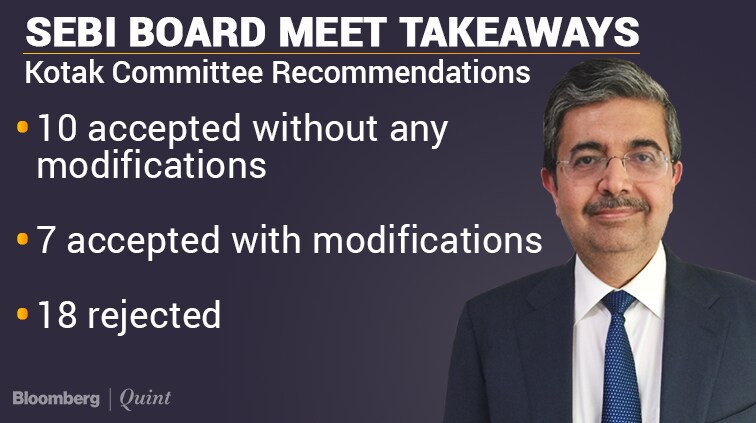
India's market watchdog SEBI has allowed traders to share co-location facilities as it tries to address concerns on high-frequency algorithmic trading.
The Securities and Exchange Board of India has introduced shared co-location services to reduce cost for trading members wishing to operate from the co-location facility, it said in a media statement after its board meet. “This will reduce cost of brokers and address concerns of unfair access,” SEBI Chairman Ajay Tyagi said in a media conference.
Stock exchanges will also provide tick-by-tick data feed for free, he added.
Earlier this month, SEBI had proposed a review of algorithmic trading to disincentivise it amid concerns that high-frequency traders have unfair access to the exchange's systems. The regulator had noted that algorithmic traders intentionally clogged the systems with a large number of orders.
SEBI's decision comes 18 months after it had floated a discussion paper in the public domain on the issue. Algorithmic trading or ‘algo' in market parlance refers to orders generated at a super-fast speed by use of mathematical models to execute trade automatically.
Tyagi said that stock exchanges will now allot a unique identifier to each algorithm for establishing an audit trail. “This will help surveillance by SEBI,” he added. Exchanges will also have to provide a simulated market environment for testing of software including algorithms.
The regulator also accepted most recommendations made by the Uday Kotak-led committee on corporate governance, including some with modifications. Eighteen recommendations have not been accepted.
Also Read: SEBI Accepts Kotak Panel's Suggestion To Split CEO, MD And Chairman Posts
Kotak Committee Recommendations
Here are the recommendations of the Kotak committee accepted without modifications:
- Reducing maximum number of directors on board of listed entities to 8 from 10 by April 1, 2019 and to 7 by April 1, 2020.
- Expands eligibility criteria for listed entities.
- Enhanced role of audit, nomination and remuneration, and risk management committees.
- Disclosure of utilisation of funds from QIP, preferential issue.
- Disclosure of auditor credentials, audit free, reasons for resignation of auditor.
- Disclosure of expertise and skills of directors.
- Enhanced disclose of related-party transaction and related parties be permitted to vote against each other.
- Mandatory disclosure of quarterly results from year ending March 2020.
- Enhance obligations on listed entities regarding subsidiaries.
- Secretarial audit to be mandatory for listed entities and their unlisted subsidiaries under SEBI rules.
Here are the recommendations accepted with modifications:
- Minimum of six directors in the top 1,000 listed entities by market cap by April 1, 2019 and in the top 2,000 listed entities by April 1, 2020
- At least one woman independent director in the top 500 listed entities by market cap by April 1, 2019 and in the top 1,000 listed entities by April 1, 2020
- Separation of CEO/MD and chairperson (to be initially made applicable to the top 500 entities by market cap with effect from April 1, 2020)
- Quorum for board meetings (one-third the size of the board or three members, whichever is higher) in the top 1,000 listed entities by market cap by April 1, 2019 and in the top 2,000 listed entities by April 1, 2020
- Top 100 entities to hold AGMs within five months after the end of FY2018-19
- Webcast of AGMs will be compulsory for top 100 entities by market cap with effect from FY19
- Shareholder approval for royalty/brand payments to related party exceeding 2 percent of consolidated turnaround (instead of proposed 5 percent)

Revised Framework For Listing Norms
- To revise existing enforcement framework for non-compliance of listing regulations by companies
- This includes composition of board and its committees, submission of corporate governance compliance report, financial reports, voting results etc
- Non-compliance will lead to imposition of strict fines
- Empowers stock exchanges to freeze shareholding of the concerned promoter and promoter group in the non-compliant entity and their shareholding in other entities
- If non-compliance continues, it will lead to suspension.
Shared Co-location Services
- Allows the introduction of shared colocation services to "reduce cost for trading members."
- Stock exchanges to provide tick-by-tick data feed to all trading members, free of charge
- Trading members to create necessary infrastructure
- Stock exchanges to increase the depth of snapshot of five best bid and ask quotes
Takeover Regulations
- Amendments have been proposed to the existing set of takeover regulations
- Additional time for upward revision of open offer price has been proposed
Buyback Regulations, 2018
- It is proposed to re-frame an entirely new set of buyback regulations, 2018
Here are the other decisions taken at the SEBI board meet:
- Physical settlement to be done for all stock derivatives in a phased and calibrated manner.
- The board also approved a proposal to reduce the maximum additional expense allowed to be charged to a mutual fund scheme to 5 basis points from 20 basis points earlier.
Watch this discussion with Amit Tandon, co-founder and managing director at Institutional Investor Advisory Services on the implications of the decisions taken by SEBI today.
Essential Business Intelligence, Continuous LIVE TV, Sharp Market Insights, Practical Personal Finance Advice and Latest Stories — On NDTV Profit.




















